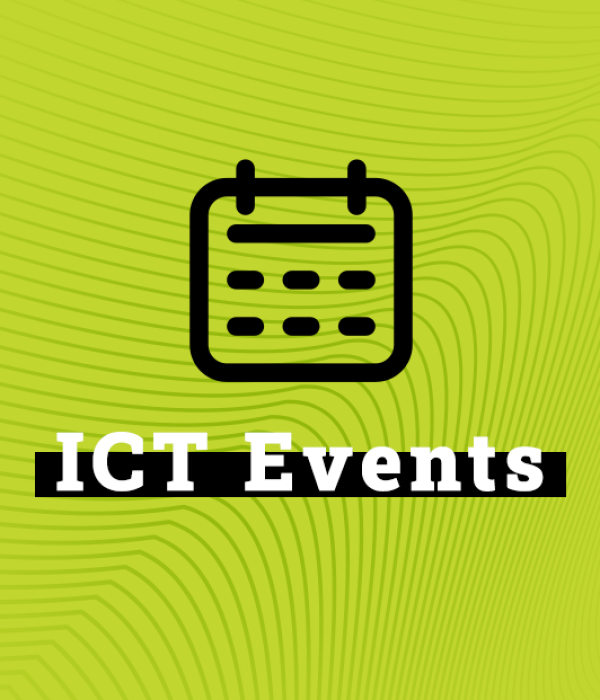Modern times bring about modern diseases.
Technology has become so integrated into our lives, to the point of shifting and merging the boundaries of moderate use. As a result, unhealthy habits are created which, if nurtured to an extreme, will most assuredly result in huge consequences both for physical and mental health.

Dependence on technology can severely damage children who are still struggling to find their identity and place in the world. Young minds with too much free time and undefined moral and ethical concepts will develop a severe dependence on technology and bring it to a completely new level. Therefore, it is of upmost importance to familiarize with the numerous forms of e-diseases and how IT technology may affect physical and mental health.
What are e-diseases?
Roughly speaking, e-diseases are considered any addictions to IT technology, regardless of whether it is activities on a specific hardware, such as a phone, or with a specific software application, such as games. If something is used excessively, to the point of impairing physical and mental health, then such users could be labeled as IT addicts.

The most common symptoms of e-diseases, from a physical point of view, are problems with the head, neck, back, eyes, as well as increased body weight. From a mental point of view, people who are trapped in this vicious cycle of technological addiction exhibit symptoms of anxiety, depression, social isolation, lack of self-esteem, sleep problems and a host of other symptoms.
The many forms of e-diseases!
Nomophobia – irrational fear of being without a mobile phone
Nomophobia is the fear or high feeling of anxiety caused by not having a functioning mobile phone at all times. It is an addiction that shares many characteristics with drug addiction – the anxiety is so high that it causes deep feelings of panic, depression, loneliness and isolation. In certain situations, mental feelings can cause breathing problems, tachycardia and severe headaches.
They say that a person who wears glasses should have another pair just in case. This is a philosophy that is firmly believed by people who are victims of this phobia and often known to have a few extra phones just in case, with chargers, cables, power banks and frequent cloud synchronization. But children do not have this luxury, and losing or confiscating their phone is the most severe form of punishment for them.

In conversations with students and parents, we have noticed that for many children the punishment is applied by confiscating the phone or by constantly threatening that the phone will be confiscated if the children do not change their behavior, improve their grades or achieve some specific goal set by the parents. The constant fear can be too much and culminate in a complete emotional breakdown when the unthinkable happens to them.
For that reason, when the child’s phone is already taken away, it is necessary to constantly be with them and guide them to better deal with the temporary loss. A similar method is recommended when interacting with adults, that is, to show them that they are not alone and that if the unthinkable happens to them, there are always alternatives that can be set in motion.
FOMO – fear of missing out
Fear of Missing Out is a perception that the person must be constantly connected to the Internet and be aware of the events that are of interest to them. Every moment of disconnection from the Internet is a painful moment of constant bombardment by thoughts that key things are happening behind their back and that the only way for happiness is to live through the social networks and to be constantly showered by the flow of information.

A person who is in a deep FOMO stage is constantly barraged by feelings of exhaustion, bad mood, stress and impatience between loved ones, as well as feelings of loneliness, no confidence and deep distraction. FOMO is also problematic in that it influences a person to further reinforce numerous negative habits and behaviors. So, it is believed that a child suffering from FOMO has a greater tendency to escalate bad behavior and appear aggressive.
As an addiction, FOMO is most prominent in video games. Many live-service games feature numerous, but time-limited promotions and events that reward gamers with exclusive prizes. Since the events are temporary, many gamers struggle to find the time and nerves to be a part of all the events and all the activities, all in order to unlock the unique skin or mechanic. At the end of the day, what should have been a relaxing gaming session has transformed into a race against time and a grind of epic proportions.

Starting with small steps, the person suffering from FOMO should be instructed first to use software that limits the use of social networks. Then, if a more drastic step is deemed necessary, encourage deleting social networking apps or taking a longer break from them. This will not be easy at all, and therefore it is very important that the person is surrounded by people who love and, above all, know how to help them.
Cyberstalking – stalking through social networks
A person who shows an unhealthy form of love for another person, group, or organization may develop a high degree of obsession and acquire tendencies to use the Internet and electronic means to stalk and harm the other person, group, or organization. This is cyberstalking and is considered an extremely dangerous form of addiction because it can easily turn into cyber violence.
The person being tracked can be framed for false accusations, ridicule and blackmail, as well as a host of other forms of identity theft and online vandalism. To what extent one will go, depends on the will and technical knowledge of the person who started the stalking.
Deep cyberstalking addicts have only one desire and one mission – to devote all their time to the source of their obsession. As a result, anything outside of that can cause increased feelings of irritation and aggression. The person is usually not interested in normal social interactions and suffers from feelings of rejection and loneliness, and cyberstalking is usually seen as a tool that makes them alive and helps them to be noticed and registered by the only person that gives them focus.

Some of the people are completely satisfied with stalking, but after a certain time and with increasing emotional hunger, most of them realize that just watching from the side is not enough, and it is necessary to take more drastic steps to attract attention. The first step is usually to create fake profiles. Anonymity, as I’m sure you know, gives a false sense of security, and with-it incredible courage.
If you believe that someone might be cyberstalking or cyberbullying, you should try to dissuade the person from doing so, especially if it is a child. In many situations, the victim of violence is the one who reacts to the parents or teachers, and thus further damage can be prevented, whether by restricting the Internet, whether by implementing aiding applications or through careful and honest conversations with those involved. But as with all things, there is no magic solution to this and much depends on the unique circumstances of those affected.

Nomophobia, Fomo and cyberstalking/violence… you just don’t know which is worse. In our first part of this series, we tried to introduce you to the three most common and most dangerous forms of e-diseases. We chose them precisely because they seemed to us the most cunning and slippery for the human psyche. Certain symptoms in a milder form can be observed in all of us, and if we do not decide to starve them in time, it may happen that we like the things that whisper to us and fail to resist their power.
But these were only part of a much larger collection of e-diseases and IT addictions. Stay with ITLogs in the coming days as well, especially if you have a tendency to constantly take selfies, get easily upset about the smallest problems with technology, or constantly think that your phone is ringing or signaling something.





